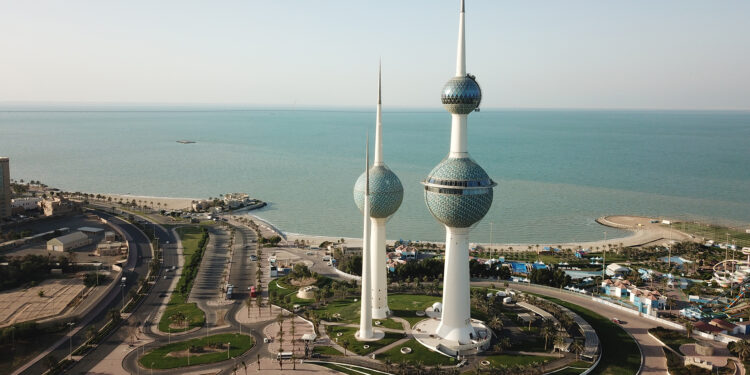Kuwaiti Minister of Finance and Minister of State for Economic Affairs and Investment Anwar Al-Mudhaf expects his country’s budget revenues for the fiscal year (2024-2025) to decline by 2.8% to about 18.9 billion dinars ($61.6 billion).
The minister added in an interview on Kuwait TV on Wednesday evening that the total expected expenditures in the general budget (2024-2025) were estimated at 24.5 billion dinars ($79.9 billion), down 6.6% from the previous fiscal year. He explained that the budget is expected to record a deficit of 5.6 billion dinars ($18.2 billion).
Support.. for those who deserve it
Regarding support, Minister Al-Mudhaf said that there is “injustice in its distribution,” as “it is given to those who need it and to those who do not,” and stressed the need to direct support to those who deserve it, as “it is illogical for support to be equal between individuals and companies.” He stressed that sustainability and justice are very important for any future financial reform.
The Minister stressed that one of the weaknesses of the Kuwaiti economy is its reliance on a single source of income, which is oil, adding that financial sustainability is a primary and supreme goal of the reforms that seek to diversify sources of income instead of relying on oil alone, in addition to creating new job opportunities through the participation of the private sector.
He explained that in the past ten years, Kuwait recorded a deficit in its final account amounting to about 33 billion dinars ($107.6 billion), which was financed from the state’s general reserves, noting that “the expected deficit in the budget during the next four years is estimated at 26 billion dinars ($84.8 billion).”
He pointed out that “Kuwait is a rich country, but if the pace of spending continues as it is without taking reforms, the reserve will be resorted to to cover the budget deficit.”
State lands..repricing
Regarding state lands, Minister Al-Mudhaf pointed out the necessity of re-pricing them according to the type of projects and initiatives, as “state lands remain a very valuable asset, and re-pricing them is a principle… This asset is given to projects at a cheap price, and it is now necessary to reconsider the pricing of these valuable lands.”
In another context, the Minister of Finance stated that China “has nominated a Chinese company to implement Mubarak Al-Kabeer Port, and correspondence is currently being exchanged between it and the Kuwaiti government to begin the process of completing the implementation of the large development port soon.” He pointed out that the consultation also extends to a number of other development projects such as the Shagaya Renewable Energy Project.
He stressed that the state is currently preparing financial reforms and has future projects to keep pace with development in the Gulf region.
For her part, Undersecretary of the Ministry of Finance Aseel Al-Munifi said that revenues decreased due to the decline in Kuwait’s share of total oil production within the Organization of the Petroleum Exporting Countries (OPEC), while expenditures decreased following the setting of a ceiling to rationalize spending in the budget. She explained that the decline in capital expenditures is not an indication of a decline in the state’s capital expenditures.
She stated that the share of salaries and support from the estimated budget represents 78.8% of its value, as salaries amount to 14 billion dinars ($45.6 billion) and various supports amount to 4 billion dinars ($13 billion).



